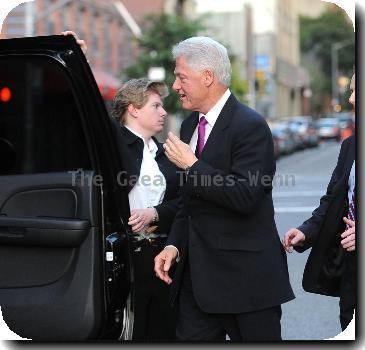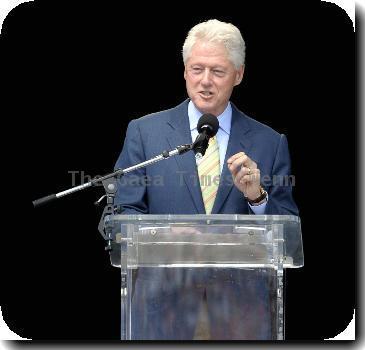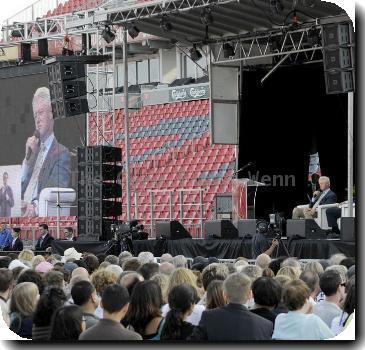Only Irishman convicted of Real IRA’s 1998 Omagh car-bomb massacre acquitted in Dublin retrial
By Shawn Pogatchnik, APWednesday, February 24, 2010
Man convicted of Omagh bomb acquitted in retrial
DUBLIN — The only man ever convicted of involvement in the 1998 car-bomb slaughter in Omagh was acquitted Wednesday in a retrial judgment that angered the survivors of Northern Ireland’s deadliest blast.
The three judges of Ireland’s anti-terrorist Special Criminal Court ruled that police had failed to collect sufficient evidence against Colm Murphy, 57 — and had fatally undermined their case by illegally rewriting their records of Murphy’s alleged admissions under interrogation.
Murphy, an Irish Republican Army veteran once caught in an FBI sting trying to buy American machine guns, said outside the courthouse that he was “glad to see it’s all over.”
Nobody has been successfully prosecuted for the Aug. 15, 1998, attack by the Real IRA splinter group in the heart of Omagh. Twenty-nine people, mostly women and children, died after the 500-pound (225-kilogram) car bomb ripped through crowds of shoppers, workers and tourists whom police had evacuated away from the town’s courthouse, thinking it was the target.
Michael Gallagher, who lost his only son, Aiden, in the bombing, watched Murphy’s acquittal with what he described as a mixture of familiar sadness and long-buried fury.
“The families have been disappointed time and time again, but when it happens it is still hard,” said Gallagher, who attended Wednesday’s court hearing. “I think this is the first time in years I feel angry.”
He noted that the British and Irish governments repeatedly vowed following the Omagh atrocity to catch and punish the bombers, and U.S. President Bill Clinton visited the scene to offer American support — yet justice has never come.
Instead, judges on both sides of the Irish border have blamed detectives for bungling their investigations.
Police in the British territory of Northern Ireland tried to convict Murphy’s nephew Sean Hoey of manufacturing several Real IRA bombs, including the one used in Omagh. But that case collapsed in 2007 when a Belfast judge rejected the forensic evidence as unreliable.
The main evidence against Murphy was the records of two cell phones, which were tracked crossing the Irish border to Omagh and back on the day of the attack. He received a 14-year sentence in 2002 — even though the judges in that trial denounced two of the detectives who interrogated Murphy for lying on the witness stand.
Murphy’s lawyers successfully appealed the conviction three years later by demonstrating that the two detectives had rewritten their notes of Murphy’s alleged statements in custody. Ireland’s Court of Criminal Appeal freed Murphy on bail after he had served three years of his sentence and ordered a retrial.
Labour Party justice spokesman Pat Rabbitte said it was “bitterly disappointing,” but not surprising, that Murphy won his retrial because of the detectives’ shoddy work.
“The lesson that must be learned is that, even in the investigation of the most heinous offenses, investigating officers must remain within the law and there can be no short cuts to convictions,” Rabbitte said.
Last year, Murphy was one of four alleged IRA dissidents who lost a landmark lawsuit in Belfast filed by 12 relatives of the Omagh dead.
He and three other men convicted of dissident IRA activities were ordered to pay the victims 1.6 million pounds (more than $2.5 million), but they are appealing the judgment.
Murphy has served three prison sentences in Ireland and the United States for activities in the outlawed IRA and its breakaway factions.
In 1983, he was caught in an FBI sting operation while trying to buy U.S. Army M60 heavy machine guns from an undercover officer. He served half of a five-year sentence before being deported back to Ireland.
Tags: Bill Clinton, Bombings, Dublin, Europe, Geography, Ireland, North America, United Kingdom, United States, Western Europe


